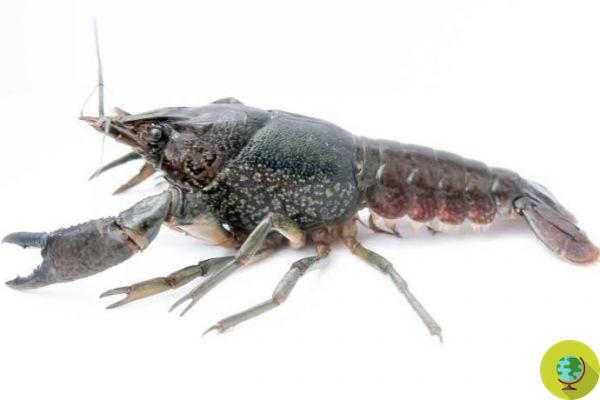
They are called marbled shrimps, in the world there are only female "clone" specimens, all of which come from a single female. A new study on the genome of these creatures has shown this
He is about to end up run over, his mother saves himThey are called marbled shrimps, in the world there are only female "clone" specimens, which all come from a single female. A new study on the genome of these creatures has shown this.
It is the only crustacean capable of asexual reproduction. Hers is a rather disturbing story. About 30 years ago, in 1995, it attracted attention because an aquarium owner in Germany found himself with a tank full of females "cloned" from a single mother. Even stranger, the eggs didn't need to be fertilized.
Since then, females have been able to spread successfully and massively without the help of males, scientists from the German Cancer Research Center (DKFZ) recently confirmed.
There is something else. The evolution of the crayfish genome can help as wellfold the processes that underlie the development of tumors.
I shrimp marbled or marmorkrebs I am capable of parthenogenesis, a natural form of asexual reproduction in which the development of the egg occurs without it having been fertilized.
In the new study, Frank Lyko and his team from the German Center for Cancer Research (Deutsches Krebsforschorsszentrum, DKFZ) in Heidelberg provided evidence that all female marbled shrimp offspring were genetically identical.
Lyko explains: “We could only detect a few hundred variants in a genome that is larger than the human one. This is an incredibly small number. "
The tiny variations can be attributed to natural mutations. The DKFZ researchers counted 3,5 billion base pairs in the crayfish genome, about 7% larger than the human genome.
In another part of the study, a scientist from Madagascar examined to what extent crayfish are capable of spread in nature through parthenogenesis. Their enormous "rapid and massive" reproductive success was discovered.
In addition to Madagascar, marbled shrimp can also be found, for example, in Sweden, Japan, Freiburg, Hanover or Heidelberg. This is proof of their remarkable adaptability, without any sexual reproduction.
Although all marbled shrimp are born with the same genes, they are capable of to adapt a a wide variety of habitats. This is made possible by epigenetic mechanisms that function as switches that turn genes on or off.
"Epigenetic variants are often influenced by genetic variants, but in Marmorkrebs the epigenetic variation is independent," Lyko explained.
Shrimp and tumors
But what do these particular shrimps have to do with tumors? It was this epigenetic regulation that intrigued scientists. The mechanism of clonal evolution occurs in both shrimp and tumors. Epigenetic mechanisms play a key role in these processes. They can influence cancer risk and the course of the disease.
According to Julian Gutekunst, who is the first author of the publication, the key question to be answered is “what impact do environmental factors have on epigenetics and genetic regulation”.
These findings can broaden our knowledge of cancer processes and open new perspectives for their treatment.
It must also be said that these animals are an invasive species that have invaded rivers and lakes all over the world for over 20 years, destroying the balance of ecosystems and endangering the survival of some species.
READ also:
- New animal species: the most beautiful shrimp in the world
Francesca Mancuso


























